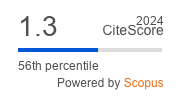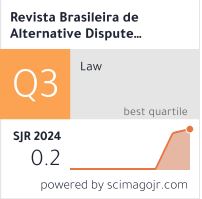International Criminal Law and its Contribution to Human Rights Safeguards
Beyond Borders Defending the Defenseless
DOI :
https://doi.org/10.52028/rbadr.v7.i13.ART11.INMots-clés :
Human Rights, War Crimes, Humanity, ICC, Legal LandscapesRésumé
To protect human rights, holding people accountable and demanding compensation
from countries is necessary. International criminal law tools, such as the Nuremberg Verdict of the
International Military Tribunal (IMT) and the Charter, protect several rights outlined in the Universal
Declaration of Human Rights. The 1949 Geneva Conventions expanded the scope of the universality
principle to include war crimes, and the rights protected by the numerous human rights covenants are in
line with the specific serious violations. International criminal law is essentially a supplement to human
rights, acting as a means of enforcement to determine personal responsibility and punish individuals
who infringe on these rights. Human rights legislation and the ensuing legal framework for defending
the rights of the accused. It clarifies the extent to which human rights are protected in international
criminal courts and points out certain obstacles that might result in individual rights being violated and
endanger the core idea of a “fair trial”. The paper discusses the extension of the notion of a fair trial
to international criminal proceedings and suggests possible ways to overcome these problems within
the framework of the international criminal justice system. It also explores the connections between
international criminal courts and human rights monitoring systems, looking at the potential effects on
individual rights of accusatorial and inquisitorial aspects of the international criminal process.
Références
Altunjan, T. (2021). The International Criminal Court and sexual violence: Between aspirations and reality. German Law Journal, 22(5), 878-893.
Altunjan, T. (2021). Reproductive violence and international criminal law. TMC Asser Press.
Benyera, E. (2024). Child victim, loyal war spirit medium or war criminal: shifting the geography and logic of historical accountability in Dominic Ongwen’s ICC trial. African Identities, 22(1), 197-212.
Beresford, A., & Wand, D. (2020). Understanding bricolage in norm development: South Africa, the International Criminal Court, and the contested politics of transitional justice. Review of International Studies, 46(4), 534-554.
Bergsmo, M. (Ed.). (2021). Human rights and criminal justice for the downtrodden: essays in honour of Asbjørn Eide. Brill.
Bondarchuk, N. (2024). Environmental rights protection in Ukraine: a call for reform and learning from the EU and Romania experience. Scientific Collection «InterConf», (187), 146-152.
Cliquennois, G., & Snacken, S. (2024). The Ability of Human Rights to Limit the State’s Power to Punish in Europe: Connecting Prison and Mental Health Policies through the Concept of “Transpolicies”. Law & Social Inquiry, 1-25.
Costello, C., & Mann, I. (2020). Border justice: migration and accountability for human rights violations. German Law Journal, 21(3), 311-334.
D’Alessandra, F., & Sutherland, K. (2021). The promise and challenges of new actors and new technologies in international justice. Journal of International Criminal Justice, 19(1), 9-34.
Greenawalt, A. K. (2021). What is an international crime? Gupta, A., Biermann, F., van Driel, E., Bernaz, N., Jayaram, D., Kim, R. E., ... & Wewerinke-Singh, M. (2024). Towards a Non-Use Regime on Solar Geoengineering: Lessons from International Law
and Governance. Transnational Environmental Law, 1-32.
Gutiérrez Gallo, C. (2023). The Principle of Positive Complementarity In International Criminal Law And Its Convergence With Domestic Transitional Systems: The Case Of Colombia.
Hasan, A., & Buheji, M. (2024). A World Losing Its Legitimacy-Gaza from Collective Punish till Ethnic Cleansing & Genocide. International Journal of Management (IJM), 15(1), 2024.
Hussain, N., Khan, A., & Chandio, L. A. (2023). Legal Safeguards against Mob Justice: An Analysis of Blasphemy Laws in Pakistan and International Human Rights Norms. Al-Qamar, 13-26.
Jalloh, C. C. (2020). The International Law Commission’s First Draft Convention on Crimes Against Humanity: Codification, Progressive Development, or Both? Case W. Res. J. Int’l L., 52, 331.
Jessberger, F., & Geneuss, J. (Eds.). (2020). Why punish perpetrators of mass atrocities?: purposes of punishment in international criminal law. Cambridge University Press.
Jessberger, F., Meloni, C., & Crippa, M. (Eds.). (2023). Domesticating International Criminal Law: Reflections on the Italian and German Experiences. Taylor & Francis.
Kalpouzos, I. (2020). International criminal law and the violence against migrants. German Law Journal, 21(3), 571-597.
Kilonzo, J. M. (2024). The potential for rights-based third-generation disarmament, demobilisation and reintegration programmes in Cabo Delgado. Mozambique’s Cabo Delgado Conflict: International Humanitarian Law and Regional Security.
Koh, N. S., Ituarte-Lima, C., & Hahn, T. (2022). Mind the compliance gap: how insights from international human rights mechanisms can help to implement the convention on biological diversity. Transnational Environmental Law, 11(1), 39-67.
Leslie, D., Burr, C., Aitken, M., Cowls, J., Katell, M., & Briggs, M. (2021). Artificial intelligence, human rights, democracy, and the rule of law: a primer. arXiv preprint arXiv:2104.04147.
Ligthart, S., Douglas, T., Bublitz, C., Kooijmans, T., & Meynen, G. (2021). Forensic brain-reading and mental privacy in European Human Rights Law: Foundations and challenges. Neuroethics, 14, 191-203.
Machado, H., Neiva, L., Granja, R., & Silva, S. (2024). Ethical, legal, and social challenges of next-generation sequencing technologies (NGS) in forensic criminal identification. In Next Generation Sequencing (NGS) Technology in DNA Analysis (pp. 551-569). Academic Press.
Mammadli, I. (2023). International Organisations and Accountability for Human Rights Abuses: Obstacles Caused by Jurisdictional Immunity. Baku St. UL Rev., 9, 66.
Mantouvalou, V. (2024). Advancing human rights, capabilities and non-domination at work. Oxford University Press (OUP).
May, R., & Wierda, M. (2021). International criminal evidence (Vol. 9). Brill.
McDonald, G. K., & Swaak-Goldman, O. (Eds.). (2022). Substantive and Procedural Aspects of International Criminal Law: Documents and Cases (Volume II). Brill.
Mégret, F. (2023). Immunities of Foreign Officials for International Crimes: The Dilemmas of Strategic Litigation. Journal of Human Rights Practice, 15(1), 66-83.
Mettraux, G. (2020). International Crimes: Law and Practice: Volume II: Crimes Against Humanity. Oxford University Press.
Minha, D. (2020). The Possibility of Prosecuting Corporations for Climate Crimes Before the International Criminal Court: All Roads Lead to the Rome Statute? Mich. J. Int’l L., 41, 491.
Montasari, R. (2024). The Impact of Facial Recognition Technology on the Fundamental Right to Privacy and Associated Recommendations. In Cyberspace, Cyberterrorism and the International Security in the Fourth Industrial Revolution: Threats, Assessment and Responses (pp. 259-270). Cham: Springer International Publishing.
Nugroho, C. (2024). Responsibilities of the Government of Indonesia Regarding Human Rights Enforcement in the Perspective of International Law (Study of Cases of Armed Criminal Groups (KKB) in Papua). PROIROFONIC, 1(1), 31-41.
Ogbe, R. S. (2023). The Criminalization of the Violation of International Human Rights. RUNJJIL, 3, 1.
Palmer, E. (2020). Adapting International Criminal Justice in Southeast Asia: Beyond the International Criminal Court. Cambridge University Press.
Pereira, R. (2020, June). After the ICC Office of the Prosecutor’s 2016 Policy Paper on Case Selection and Prioritisation: Towards an International Crime of Ecocide? In Criminal Law Forum (Vol. 31, pp. 179-224). Springer Netherlands.
Pinto, M. (2020). Historical trends of human rights gone criminal. Hum. Rts. Q., 42, 729.
Pons, W. I., Lord, J. E., & Stein, M. A. (2022). Disability, human rights violations, and crimes against humanity. American Journal of International Law, 116(1), 58-95.
Prakasa, S. U. W. (2021). Ecocide crimes & omnibus law: Review of international law and its implications on indonesia law. Dinamika Hak Asasi Manusia, 12(2), 14-20.
Purshouse, J. (2020). ‘Paedophile hunters’, criminal procedure, and fundamental human rights. Journal of Law and Society, 47(3), 384-411.
Robinson, D. (2020). Justice in Extreme Cases: Criminal Law Theory Meets International Criminal Law. Cambridge University Press.
Sassòli, M. (2024). IHL and other branches of international law. In International Humanitarian Law (pp. 458-527). Edward Elgar Publishing.
Sassòli, M. (2024). International humanitarian law: Rules, controversies, and solutions to problems arising in warfare. Edward Elgar Publishing.
Schilling-Vacaflor, A., & Gustafsson, M. T. (2024). Integrating human rights in the sustainability governance of global supply chains: Exploring the deforestation-land tenure nexus. Environmental Science & Policy, 154, 103690.
Schwöbel-Patel, C. (2021). Marketing global justice: The political economy of international criminal law. Cambridge University Press.
Segate, R. V. (2021). Cognitive bias, privacy rights, and digital evidence in international criminal proceedings: Demystifying the double-edged al revolution. International Criminal Law Review, 21(2), 242-279.
Shelton, D. (2021). International crimes, peace, and human rights: the role of the International Criminal Court. BRILL.
Shepitko, V. Y., & Shepitko, M. V. (2021). The role of forensic science and forensic examination in international cooperation in the investigation of crimes. Journal of the National Academy of Legal Sciences of Ukraine, 28(1), 179-186.
Singh, B. (2019). Profiling Public Healthcare: A Comparative Analysis Based on the Multidimensional Healthcare Management and Legal Approach. Indian Journal of Health and Medical Law, 2(2), 1-5.
Singh, B., & Kaunert, C. (2024). Integration of Cutting-Edge Technologies such as Internet of Things (IoT) and 5G in Health Monitoring Systems: A Comprehensive Legal Analysis and Futuristic Outcomes. GLS Law Journal, 6(1), 13-20.
Smith, R. K. (2022). International human rights law. Oxford University Press.
Sosa, L. (2021). Beyond gender equality? Anti-gender campaigns and the erosion of human rights and democracy. Netherlands Quarterly of Human Rights, 39(1), 3-10.
Sosnowski, M., & Klem, B. (2024). Legal identity in a looking-glass world: documenting citizens of aspirant states. Citizenship Studies, 1-18.
Sun, N., Esom, K., Dhaliwal, M., & Amon, J. J. (2020). Human rights and digital health technologies. Health and Human Rights, 22(2), 21.
Tsilonis, V. (2024). The Definition of International Crime. In The Jurisdiction of the International Criminal Court (pp. 1-30). Cham: Springer International Publishing.
Vadi, V. (2024). Gravity and Grace: Sustainable Development, Foreign Investments and Cultural Heritage in International Investment Law. In Cultural Heritage, Sustainable Development and Human Rights (pp. 360-381). Routledge.
Zarmsky, S. (2021). Why seeing should not always be believing: Considerations regarding the use of digital reconstruction technology in international law. Journal of International Criminal Justice, 19(1), 213-225.
Téléchargements
Publié-e
Numéro
Rubrique
Licence
(c) Tous droits réservés Revista Brasileira de Alternative Dispute Resolution - Brazilian Journal of Alternative Dispute Resolution - RBADR 2025

Cette œuvre est sous licence Creative Commons Attribution 4.0 International.
No royalties or other compensation shall be due for the publication of the works.
The opinions expressed by the authors of the articles and reviews are their sole responsibility.









